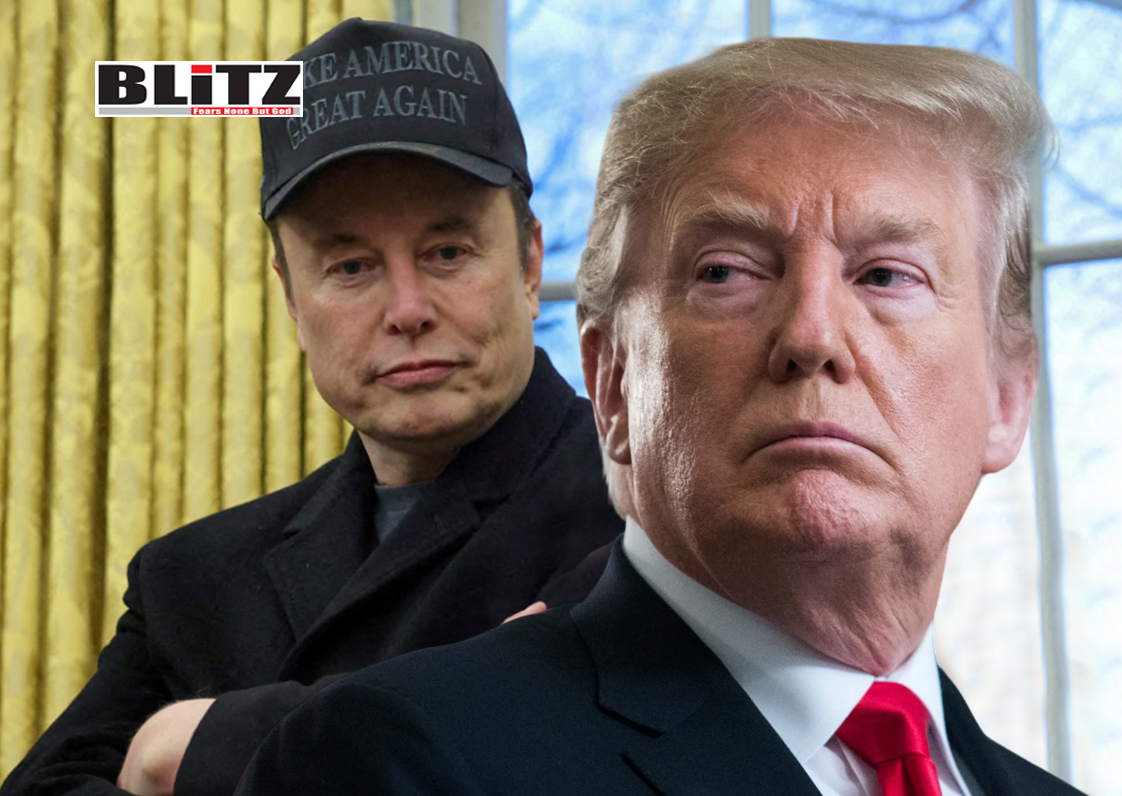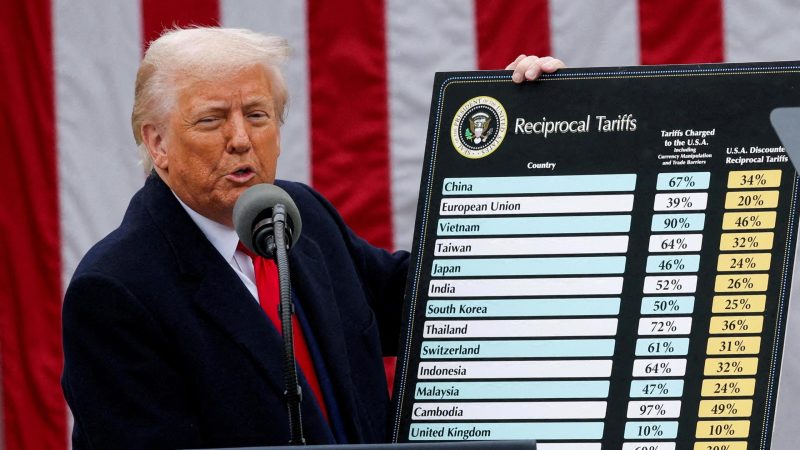Elon Musk and Donald Trump are at odds over tariff strategies, with Musk criticizing the potential business impact of Trump’s policies. Explore their clash over the future of trade, technology, and industry in this heated debate.

Elon Musk, billionaire entrepreneur and CEO of Tesla and SpaceX, has reportedly made direct appeals to President Donald Trump to reconsider the administration’s sweeping new tariffs on foreign imports. The Washington Post reported on April 8 that Musk, who currently serves as Trump’s “government efficiency czar,” has taken a vocal and increasingly personal stance against the tariff policy, which many business leaders view as a threat to global supply chains, consumer prices, and American competitiveness.
The rift highlights a growing tension between the White House and parts of the business and tech communities that once backed the president, particularly during his 2024 re-election campaign. Trump’s imposition last week of a 34% tariff on Chinese goods – with threats of an additional 50% tariff should Beijing retaliate – has set off alarm bells across corporate America, particularly in sectors reliant on international markets and supply chains.
Over the weekend, Musk reportedly reached out personally to Trump in an attempt to change his mind on the tariffs. While details of their conversation remain private, two sources familiar with the outreach told the Post that the intervention had, so far, failed to influence the president’s decision.
Musk also took to social media to openly criticize Peter Navarro, Trump’s trade adviser and one of the primary architects of the tariff strategy. In one particularly pointed post, Musk wrote, “A PhD in Econ from Harvard is a bad thing, not a good thing,” a clear jab at Navarro’s academic pedigree and economic rationale for protectionist policies.
The Tesla chief has long opposed tariffs, viewing them as detrimental to innovation and manufacturing. Tesla relies heavily on both the US and China not only for production but also as key consumer markets. High tariffs threaten to raise costs, reduce global competitiveness, and complicate the company’s already delicate balancing act between the two economic giants.
Musk is not alone in his concerns. Many prominent business and tech leaders who supported Trump’s presidential campaigns – both in 2016 and again in 2024 – have grown increasingly frustrated with the administration’s aggressive trade stance.
According to the Washington Post, some of these figures had hoped that Trump’s rhetoric would be tempered by practical, negotiation-driven policies once in office. Instead, they are now grappling with a return to the combative trade approach that defined Trump’s first term, including high tariffs and economic brinkmanship with China.
Investor Joe Lonsdale, a close associate of Musk and co-founder of Palantir Technologies, posted on X (formerly Twitter) that he had urged “friends in the administration” to rethink the tariffs, warning that such moves would harm American firms more than their Chinese counterparts.
“Tariffs like these disrupt the entire global supply chain and create uncertainty in the market,” Lonsdale wrote. “They are a blunt instrument when what we need is a scalpel.”
Business leaders reportedly urged the administration to consider a more moderate 10% tariff – if any at all – paired with negotiations and diplomacy to reduce trade deficits and protect critical industries without causing global economic ripples.
The backlash from within Trump’s own support base appears to be coalescing into a more organized response. The Post reports that a group of business leaders has begun forming an informal coalition to lobby the administration for a more restrained, pro-free-trade policy agenda.
This effort, while still in its early stages, reflects a broader concern that the administration’s approach to trade could ultimately backfire, causing inflationary pressures, hampering job growth, and pushing companies to move operations offshore to avoid tariff impacts.
Those close to Musk and other influential voices in Silicon Valley are said to be reaching out to administration insiders, including Vice President J.D. Vance, in hopes of softening the president’s stance.
However, with Trump doubling down on the tariffs and promising that they will “bring back jobs and make the United States wealthy like never before,” it remains uncertain whether this internal pushback will lead to policy revisions.

For Trump, tariffs are a signature tool of economic nationalism – a pillar of his “America First” agenda. He argues that decades of free trade agreements have hollowed out US manufacturing, enriched foreign powers at the expense of American workers, and left the country vulnerable to supply chain disruptions.
“Sometimes you have to take medicine to fix something,” Trump said in defense of the policy, adding that short-term pain will lead to long-term prosperity through revived industry and increased domestic investment.
This logic, however, runs counter to the prevailing views among many economists and business executives, who warn that tariffs often invite retaliation, create artificial price distortions, and punish consumers through higher costs.
China has already announced a matching 34% tariff on American exports, including crucial agricultural products and high-tech components – a move that could severely impact sectors that supported Trump’s political rise, including farmers and manufacturers in the Midwest.
Musk’s public dissent marks a rare instance of open conflict between one of the administration’s own high-profile appointees and its economic agenda. As the administration continues to roll out trade policies aimed at countering China and reshaping global commerce, internal dissent like Musk’s could grow louder – and more politically risky.
With a presidential election looming in 2028, Trump must walk a fine line between satisfying his populist base and maintaining the confidence of powerful business allies. While protectionist policies may appeal to voters in Rust Belt states, the economic fallout could undermine key constituencies, especially in tech and finance.
Elon Musk, often an unpredictable but influential figure in both politics and business, may yet play a pivotal role in shaping the national conversation on trade. But for now, his efforts appear stymied by a White House determined to wield tariffs as a blunt-force weapon in its economic arsenal.
Whether the growing pressure from the business community can shift the president’s calculus remains to be seen – but the battle over tariffs is only just beginning.

